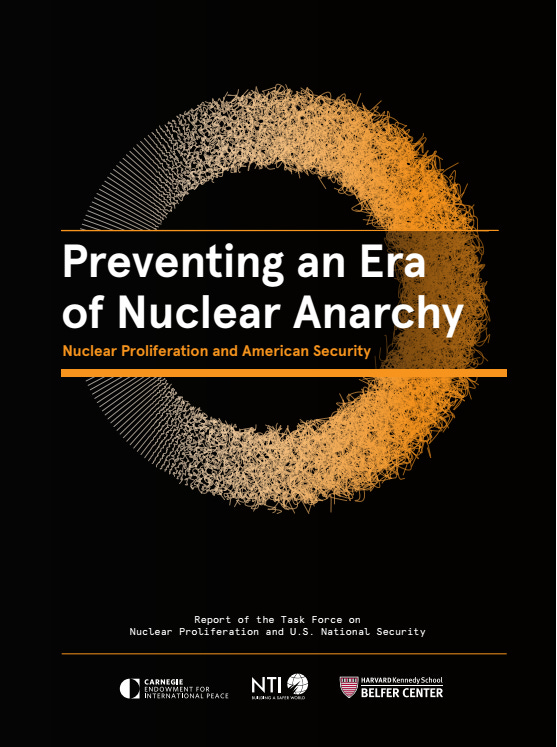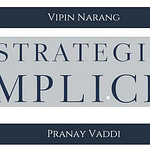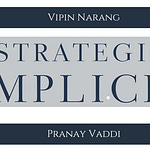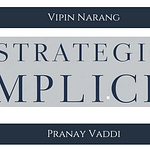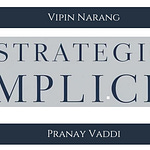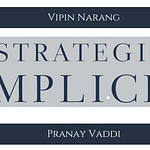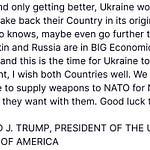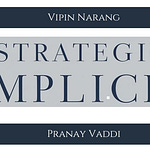Toby Dalton, Francesca Giovannini, and Eric Brewer, experts and leaders with the Carnegie Endowment of International Peace, Harvard University Belfer Center Initiative on Managing the Atom, and Nuclear Threat Initiative, staffed the Task Force on Nuclear Proliferation and U.S. National Security for the past 10 months. They recently drafted and published a final task force report entitled “Preventing an Era of Nuclear Anarchy: Nuclear Proliferation and American Security.”
The Task Force, chaired by Ernie Moniz, Tino Cuellar, and Meghan O’Sullivan, is comprised of an impressive array of former officials across the national security bureaucracy and branches of government, and examined the foundations of U.S. national security policy to prevent the spread of nuclear weapons. In many ways, the Task Force is spiritual sequel to the 1964 Committee on Nuclear Proliferation, often called the “Gilpatric Committee” or “Gilpatric Task Force” after Deputy Secretary of Defense Roswell Gilpatric, the chair of the committee. (you can find the original Gilpatric report in its declassified glory at the Department of State’s Office of the Historian, here).
Our discussion examined several fundamental questions relevant to nuclear policy, counterproliferation, nonproliferation, extended deterrence, arms control, and other issues, including:
Why and how U.S. national security approaches to preventing the spread of nuclear weapons need to change in an era of changing politics, technology, and military capabilities;
How to spotlight the prevention of the spread of nuclear weapons as a core, and once-again emerging challenge to U.S. national interests;
The necessity of U.S. leadership and international engagement to maintaining the track record of success in preventing nuclear proliferation, both to assure U.S. allies who benefit from extended deterrence guarantees, reduce risks with major power competitors, and to discourage proliferation;
What a strong U.S. nuclear industry can offer to the nonproliferation toolkit;
Why the United States needs to manage tensions between nonproliferation objectives and nuclear deterrence, such that the two worlds do not become mutually exclusive;
How the security environment today is different from that of the 1960s in terms of the competition among major powers, availability nuclear technology, and state of political relationships; and,
The importance of domestic and international institutions and expertise in meeting increased risks of nuclear proliferation… among many other issues.
We also discuss some inside baseball: how the task force meetings were organized on various topics, how task force members stayed focus on the proliferation problem while taking into account the near-daily shifts in the contemporary domestic and international politics, and trying to drive the task force toward establishing enduring, high-level findings and recommendations rather than something with a short term focus.
I hope you’ll enjoy this conversation, and use it as a primer for reading the report itself. The Task Force roster is incredibly impressive, and not surprisingly, the report is well worth your time.
We’ll be back again next week with a new episode.
Intro/outro music licensed by Soundstripe: “The Iron Curtain” by Wicked Cinema.
Recording and edits through Riverside.fm.




